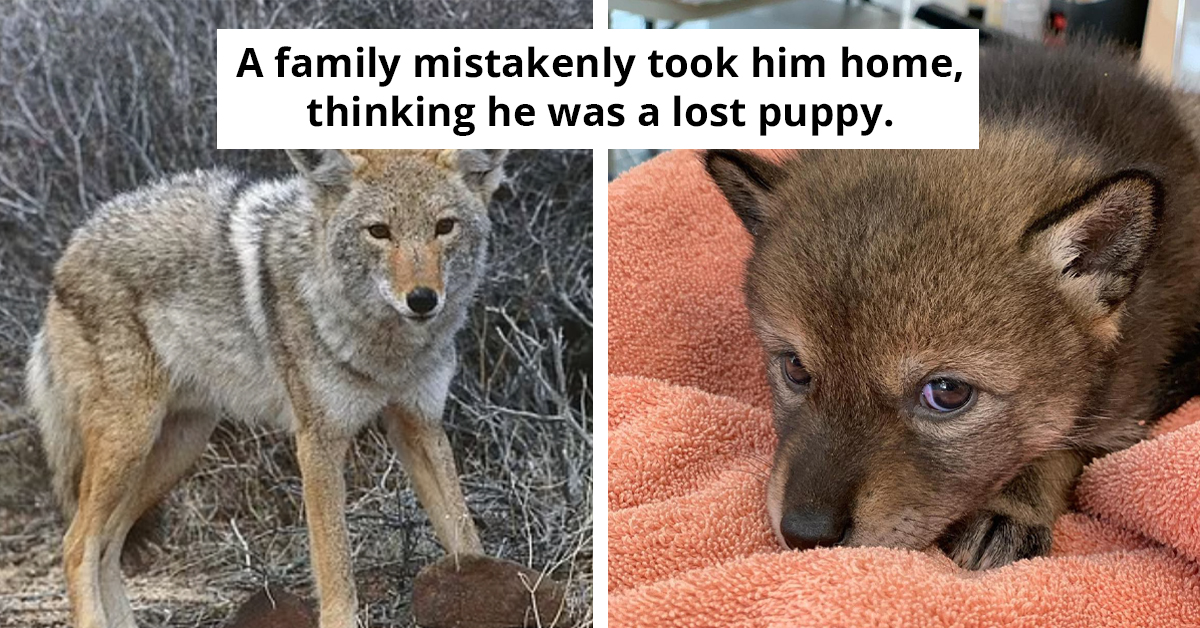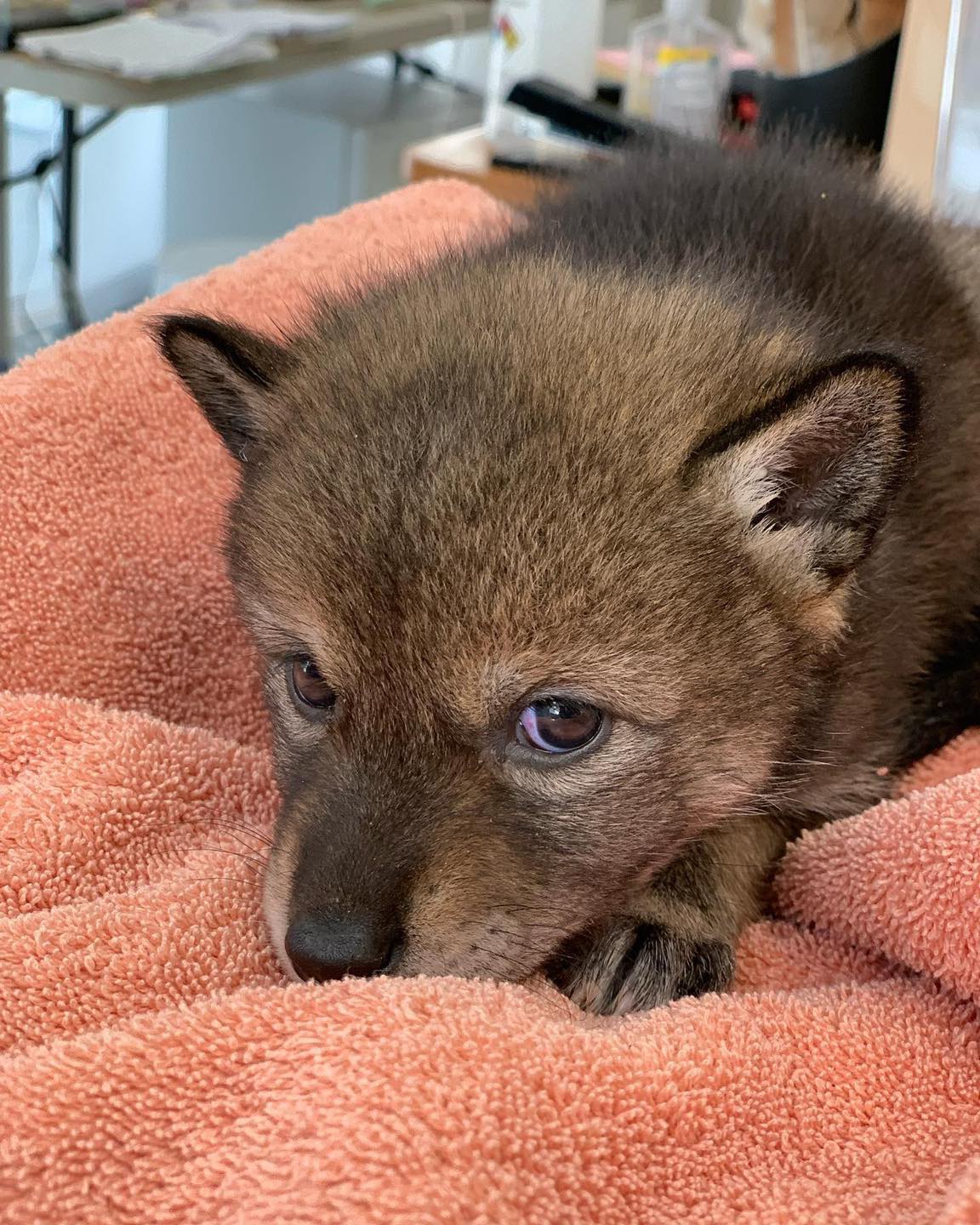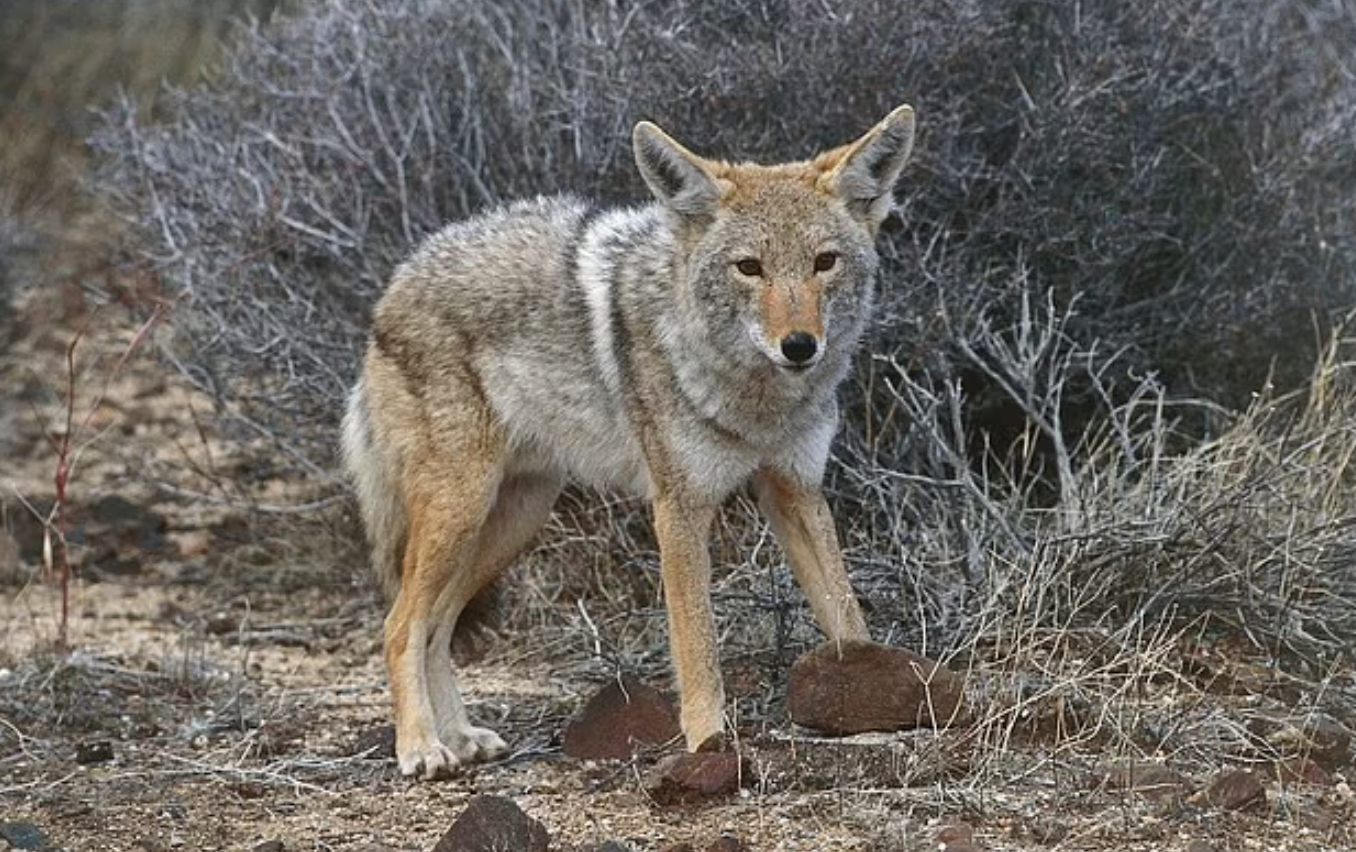Massachusetts Family Rescues Stray Puppy, Discovers It's A Baby Coyote
Upon realizing their mistake, they promptly reached out to the New England Wildlife Center for assistance.

In a heartwarming yet slightly surprising turn of events, a family in Massachusetts found themselves in an unexpected situation when they rescued what they initially believed to be a lost puppy, only to later discover that it was a baby coyote. This incident sheds light on the importance of understanding local wildlife and seeking proper assistance when encountering animals in distress.
Last month, in Cape Cod, a young eastern coyote was spotted wandering along a busy road, clearly separated from its pack and distressed. Concerned for its safety, a local family, mistaking it for a lost puppy, took it home with them.
However, upon realizing their mistake, they promptly reached out to the New England Wildlife Center for assistance. The wildlife center swiftly responded, assessing the young coyote for rabies and providing it with necessary vaccinations.
Estimated to be around five to six weeks old, the coyote pup was temporarily housed at the center. Recognizing the importance of socialization for young coyotes, the center decided to pair the pup with a female coyote of similar age, recently brought over from the Wildlife Clinic of Rhode Island.
Zack Mertz, executive director of the Cape Wildlife Center, emphasized the significance of providing a companion for the orphaned coyote, stating, “One of the best things you can do for a young pup that’s lost its family is at least provide a sibling of similar age. This way they can learn as much as they can from each other.”
A family mistakenly took him home, thinking he was a lost puppy.
 Facebook
FacebookWhile this story had a positive outcome, it shows us a reminder of the potential risks involved in rescuing wild animals without proper knowledge and assistance. In Massachusetts, coyotes are classified as a rabies vector species, meaning they are capable of transmitting rabies to other animals or humans.
Had the situation escalated differently, with the family-sustaining injuries from bites or scratches, the outcome could have been tragic. The New England Wildlife Center expressed gratitude towards those who intervened to help wildlife in need but emphasized the importance of contacting appropriate resources before taking action.
By doing so, not only can the well-being of the animal be ensured, but also the safety of those involved.
In Massachusetts, coyotes are considered rabies carriers, posing a risk of transmitting the disease to other animals or humans.
 Getty Images
Getty ImagesThe New England Wildlife Center in Massachusetts is like a hospital for animals. When animals get hurt or sick, the center takes care of them until they're healthy again.
They have a team of people who work hard to help all kinds of animals, from birds to deer. But the center doesn't just help animals; it also teaches people about them.
They have programs and exhibits where you can learn how to protect wildlife and live in harmony with nature. And they don't do it alone. The center works with other groups and scientists to learn more about animals and make sure they're safe.
This case had a happy ending, but it could have easily gone differently.
This incident highlights the importance of wildlife awareness and responsible intervention. While the family’s intentions were undoubtedly good-hearted, their misidentification of the coyote could have led to dire consequences.
By educating ourselves about local wildlife and seeking assistance from trained professionals, we can ensure the best possible outcome for both animals and humans alike.

